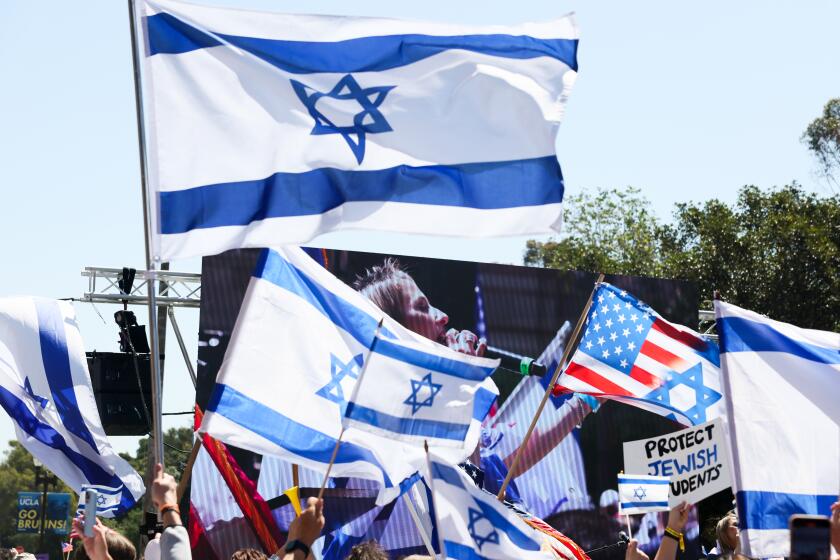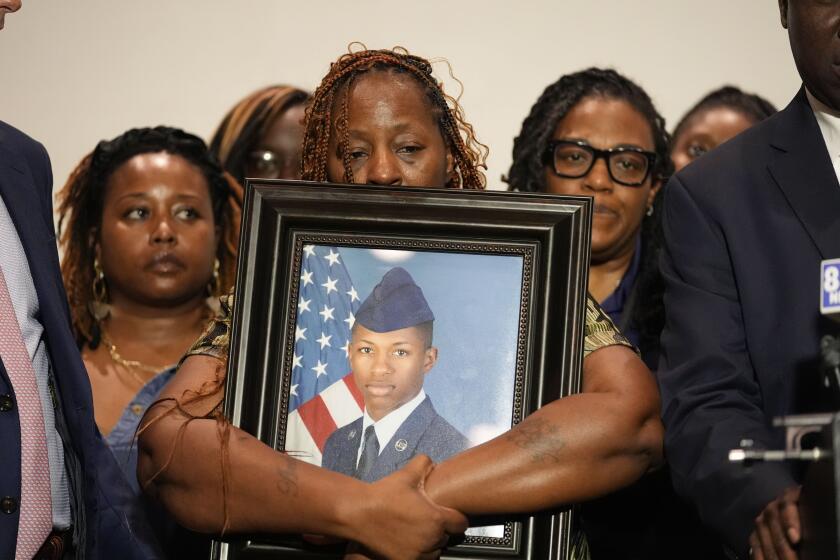Legal battle shows NYC isn’t ready to cut footloose
It’s not often this urbane metropolis gets compared to a small town with repressive mores.
But that’s the sentiment among a band of local dancers, who last week lost a fight to overturn a Prohibition-era law that bans social dancing in New York outside of specially licensed venues.
“It is right out of that movie ‘Footloose,’ ” said Paul Chevigny, a New York University Law School professor who represents the dance advocates. “In my view, underneath it all is the fact that there’s always been a puritanical fear of social dance. It’s a form of expression with the body, and people are just afraid of that.”
The 1926 law, which requires bars and restaurants to obtain a cabaret license before three or more patrons can dance, is rooted in efforts to crack down on speak-easies and interracial Harlem jazz clubs.
Over the years, as once-industrial neighborhoods gentrified, the city also tightened zoning rules -- pushing dance clubs into major commercial centers and manufacturing areas. And applying for a cabaret license is an arduous process, critics say.
There are about 150 licensed cabarets in New York, according to the city’s Department of Consumer Affairs, and 42 pending applications. Dancers say most of those play club and house music, whereas just a handful of venues offer genres such as country and western, salsa, tango, ballroom and swing.
“It’s created a self-fulfilling prophecy,” said Chevigny, who argued the court case with civil rights attorney Norman Siegel. “People fear the noise and crowds due to dancing, but because a dance license can only be obtained in isolated neighborhoods where it’s difficult to attract people, the licenses tend to go to people with really deep pockets who open a really big place.”
City officials cast the restrictions as a quality-of-life issue.
“It’s not about stopping people from dancing,” said Connie Pankratz, a spokeswoman for the city Law Department. “It’s really about protecting residential communities. There are people who want to dance and people who want to have a restful night’s sleep, so you don’t have cabarets in residential neighborhoods.”
Though the law has been on the books for more than 80 years, dance promoters said it wasn’t rigorously enforced until the late 1990s, when then-Mayor Rudolph W. Giuliani cracked down on nightclubs in an effort to curtail crime. Until then, few dance venues sought cabaret licenses.
Philip Rodrigue had just opened a music club in the Meatpacking District when the city enforcement efforts began. He quickly applied for a cabaret license, a process that proved to be exasperating, he said.
“It took me 18 months to pull paperwork that I should have been able to pull in a matter of weeks,” Rodrigue said. “I was tearing my hair out.”
In the end, he got the license but had lost so much revenue that he was forced to sell the club.
Recreational dancers say bars are so wary of being fined for illegal dancing that bouncers will ask customers to sit down if they notice movement that might be considered illicit. Some determined dancers seek out underground clubs.
“We were in a space once that got raided by the police, and the management quickly put on horrible music so everyone would stop dancing,” said Ian Dutton, an airline pilot who likes to dance to goth-industrial music. “Are we really talking about New York in the 21st century where we need dance police?”
Two years ago, Dutton, three other individuals and the Gotham Swing Club, a social dance group, filed a lawsuit against the city challenging the restrictions. They argued that the cabaret law limited freedom of expression and the zoning restrictions violated due-process guarantees.
“This is the arts capital of the world,” said Amber Henrie, vice president of the Gotham Swing Club, which holds some of its parties on Wednesdays because weekend venues are too hard to come by. “It’s very disheartening that we don’t have these opportunities.”
The lawsuit drew support from Metropolis in Motion, a group of New Yorkers pushing to lift the dance restrictions. This month, in frigid weather, the organization held a 24-hour outdoor dance marathon in Madison Square Park to raise public awareness about the cabaret law.
But the courts sided with the city. On Thursday, the state Supreme Court Appellate Division upheld a justice’s April dismissal of the lawsuit.
“We welcome the court’s decision, which properly recognized that recreational dancing is not a form of expression protected by the federal or state constitutions,” said Norman Corenthal, senior counsel in the city Law Department Appeals Division.
The dance fans are downcast but plan to appeal again.
“I just don’t understand how they cannot consider dancing a form of self-expression,” said John Festa, a swing promoter who was one of the plaintiffs. “It’s incomprehensible. Then what is it? An expression of futility?”
Chevigny said he was hopeful their case would prevail, although he noted glumly that U.S. Supreme Court had ruled that performance dance -- but not social dance -- is a protected form of expression.
“The irony,” Chevigny said, “is that strippers are protected by the 1st Amendment and waltzers are not.”
More to Read
Start your day right
Sign up for Essential California for news, features and recommendations from the L.A. Times and beyond in your inbox six days a week.
You may occasionally receive promotional content from the Los Angeles Times.






